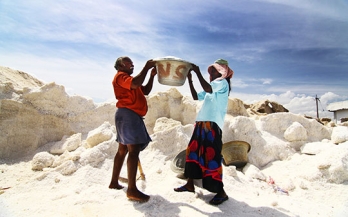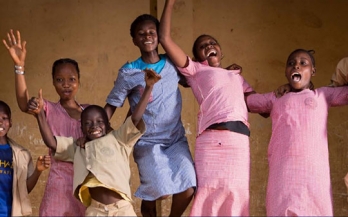GAIN and its partnerships aimed to improve complementary feeding practices through the delivery of a micronutrient powder and behaviour change communication messages to approximately 71,000 children 6–23 months in Ethiopia’s Amhara region through the public health system.
GAIN and its partnerships aimed to improve complementary feeding practices through the delivery of a micronutrient powder and behaviour change communication messages to approximately 71,000 children 6–23 months in Ethiopia’s Amhara region through the public health system.
This report presents the results of that assessment and proposes a Consumption Monitoring and Surveillance Framework consisting of the various processes, phases, components, and domains that provide an enabling environment for this to happen.
Household coverage with iodized salt was assessed in 10 countries that implemented Universal Salt Iodization.
This paper describes the rationale and methods used in setting up a multi‐country study that aimed at designing the key maternal and neonatal health interventions and identifying indicators related to inputs, outcomes, and impact.
This report highlights the successes of the global effort to eliminate iodine deficiency disorders as a public health problem. The report was commissioned as part of UNICEF-GAIN Partnership Project, funded by the Bill & Melinda Gates Foundation from 2008 to 2015, to improve iodine nutrition through salt iodisation.
This report provides an overview of the edible oil processing sector in Ethiopia. The mapping study focused on the administrative regions of Ethiopia where oil production takes place to provide prioritisation of efforts for further planning, technical assistance, monitoring, and research throughout the forthcoming edible oil fortification programme.







